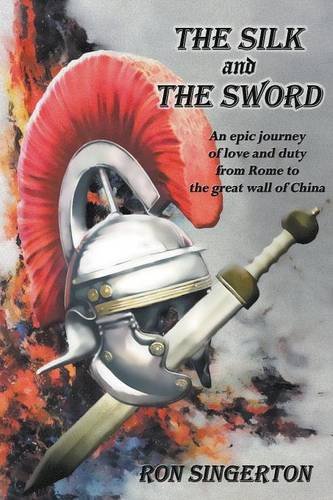The Silk and the Sword
This book’s title reflects Rome’s desire to control the silk trade, which meant destroying its primary competitor in the 1st century BC, the Parthian Empire. Triumvirate member Crassus championed this campaign as an opportunity to add to his already vast wealth. Caesar and Pompey saw the campaign as a way to get rid of Crassus, so the deal was on. The militarily incompetent Crassus leading several Roman legions to annihilation in the deserts of Mesopotamia was one of history’s greatest blunders. This novel’s storyline revolves around the handful of survivors who flee the Parthian victors not by turning west towards Rome, but by trekking thousands of miles east to the great wall of China. The major subplot centers on the mutual hate between father and son: head centurion Gaius and new recruit Tacitus, the primary protagonist. The reluctant Tacitus eventually becomes the soldier he never wanted to be as their relationship evolves.
As should be expected in an historical novel of this magnitude, there are a lot of interesting historical tidbits along the way. The germinating idea came from Chinese stories about a group of light-skinned foreigners with superb military skills who settled in northwest China near the same time as Crassus’s debacle in the Syrian desert. The author’s research into Roman military equipment and tactics is excellent. However, there are minor blunders when he ventures outside that area (equating the Nabataens with Arabs, for instance). The main complaint I had with this book is that there is a dearth of use of the five senses early on, making it difficult to get a sense of place. However, sensory details begin to appear about a quarter of the way in.










